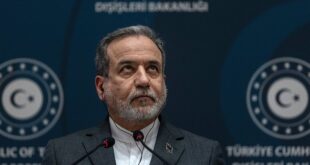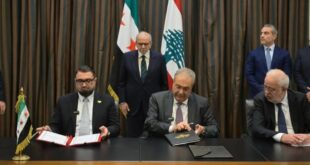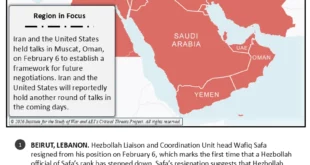 BAGHDAD (Reuters) — Gunmen killed over 50 people in an attack around a crowded market in a violent town near Baghdad on Monday, one of the bloodiest incidents in Iraq this year.Officials and residents in Mahmoudiyah, as well as the US military whose troops were later on the scene, said gunmen, apparently numbering in dozens, stormed the market in the religiously mixed town after a barrage of mortars and grenades.
BAGHDAD (Reuters) — Gunmen killed over 50 people in an attack around a crowded market in a violent town near Baghdad on Monday, one of the bloodiest incidents in Iraq this year.Officials and residents in Mahmoudiyah, as well as the US military whose troops were later on the scene, said gunmen, apparently numbering in dozens, stormed the market in the religiously mixed town after a barrage of mortars and grenades.
It was a rare form of attack against civilians. Car bombings are more common. The defence ministry said two car bombs went off first. Accounts from the scene stressed the main attack was from gunmen on foot, tossing grenades and firing on people.
The local hospital said it took in 58 dead and over 70 wounded. Shops and cars were left ablaze. State television put the death toll at 70 and showed footage of the burned out remains of vehicles and market stalls along a deserted street.
President Jalal Talabani, an ethnic Kurd, called on clerics from both Sunni and Shiite Muslim sects to condemn such violence, which he said aimed to destabilise the country and “to create a climate of mistrust among the citizens”.
The identity of the attackers was unclear. The mayor said the gunmen poured out of a Shiite suburb into the centre. The head of the local council called them Sunni rebels who attacked a Shiite family in the suburb before fanning out into the town.
Both Sunni and Shiite militants are active in an area known as the “Triangle of Deathâ€. The attack was on the anniversary of the 1968 coup that brought to power Saddam Hussein’s Sunni-led Baath Party, which oppressed Iraq’s Shiite Muslim majority.
Sunni rebels, including Al Qaeda Islamists, are believed to have discreet bases in the palm groves on Baghdad’s fringes, from where they have conducted attacks on Shiite settlements as well as regularly attacking US troops in the area.
Raid
“It was a well-planned Saddamist plot,” Mahmoudiyah council chief Abu Ali Masoudi told Iraqiya television. “They burned shops and the market and killed people who were eating their breakfast in restaurants and cafes and people going to work.” Mahmoudiyah’s Mayor Muayyad Fadhil told Reuters: “There was a mortar attack. Then gunmen came from… the eastern side of the town. They came into the market and opened fire at random on the people shopping.” He said the east of town was mostly Shiite.
Local residents told Reuters they had heard a series of explosions later punctuated by heavy gunfire. The town, in the news lately because of a rape-murder investigation against US troops, was sealed off for a time by police roadblocks.
The US military, in a statement said that 40 people were killed and 90 wounded, added: “Terrorists stormed a market near the Mohammed Amin Mosque in Mahmoudiyah… Witnesses [said] there had been a large number of terrorists throwing grenades.” Members of parliament from the Shiite Islamist faction led by militant cleric Moqtada Sadr quit Monday’s session, saying the incident was an ambush against a Shiite funeral convoy heading between the capital and a traditional cemetery at Najaf.
Some accused the security forces of failing in their duty.
Violence by Shiite militias, more or less loyal to factions in the two-month-old unity government, has come to rival that of Sunni insurgents, both Baathists and Al Qaeda Islamists, who have fought the new, US-backed rulers in Baghdad since 2003.
The US ambassador acknowledged last week that sectarian bloodshed that has pitched Iraq towards all-out civil war was now the main challenge to US hopes for Iraq. Iraqi officials and diplomats in Baghdad fear the country could slide deeper into general anarchy if myriad armed groups cannot be controlled.
US-led forces have this month arrested several Shiite warlords in Baghdad and the south without protest from Shiite political leaders, an indication they regard them as rogues.
In Basra, Iraq’s oil-rich second city, members of Sadr’s organisation identified a militant seized by British troops on Sunday as the leader of Sadr’s Mehdi Army militia in the city.
 Eurasia Press & News
Eurasia Press & News


